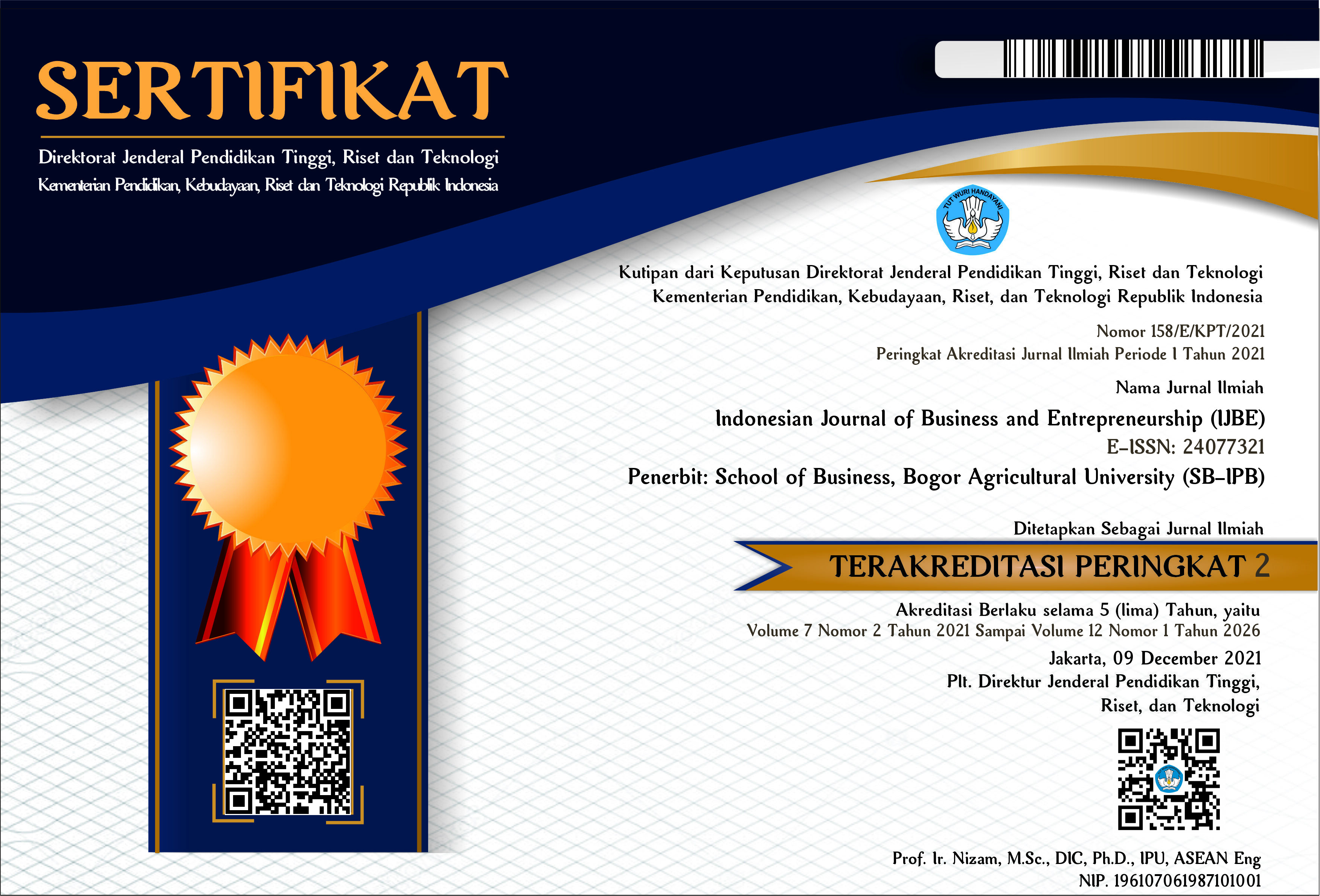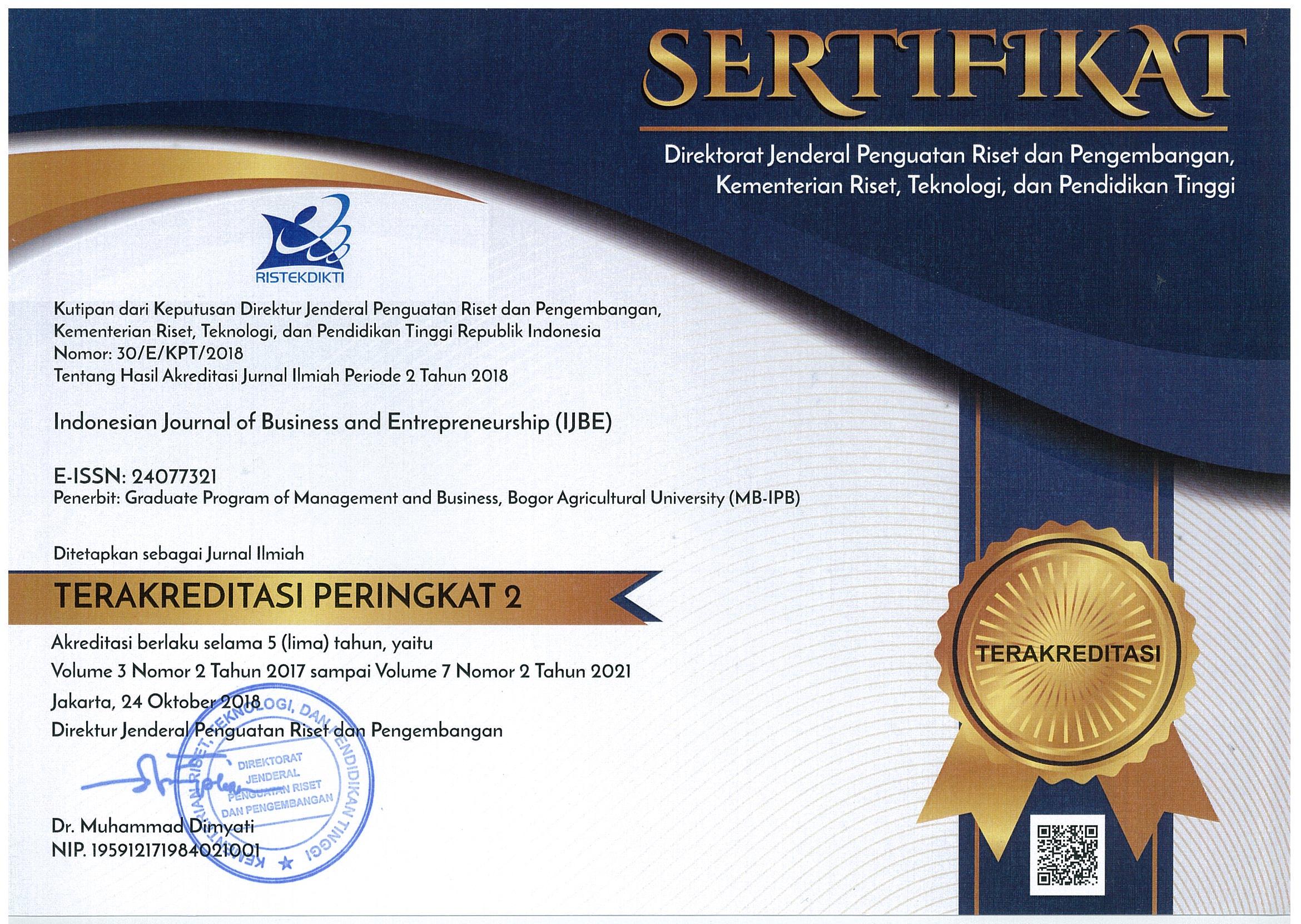Assessing The Influence of Information Technology on Female Entrepreneur Empowerment in Indonesia: The Role of Social and Psychological Capitals
Abstract
Background: Gender equality is crucial for Indonesia's sustainable development, given that women represent nearly half the population. Despite their significant economic contributions, Indonesian women face considerable challenges in entrepreneurship, largely due to gender disparities.
Purpose: This study examines how Information and Communication Technology (ICT), social capital, and psychological factors impact women's entrepreneurship empowerment in Indonesia.
Design/Methodology/Approach: Using survey data from 176 female MSME entrepreneurs and structural equation modeling, the study explores the relationships between ICT, social capital, psychological capital, and empowerment.
Findings/Results: ICT enhances both social and psychological capital, which in turn positively impacts women's entrepreneurship empowerment.
Conclusion: Integrating ICT, social capital, and psychological capital provides new insights into women's empowerment in developing economies. Recommendations include improving ICT infrastructure, social networking, and psychological support programs.
Originality/Value (State of the Art): The study offers a novel approach by linking ICT, social capital, and psychological capital to women's empowerment in entrepreneurship, particularly in a developing country context.
Keywords: empowerment, information and communication technology, psychological capital, social capital, women entrepreneurs








